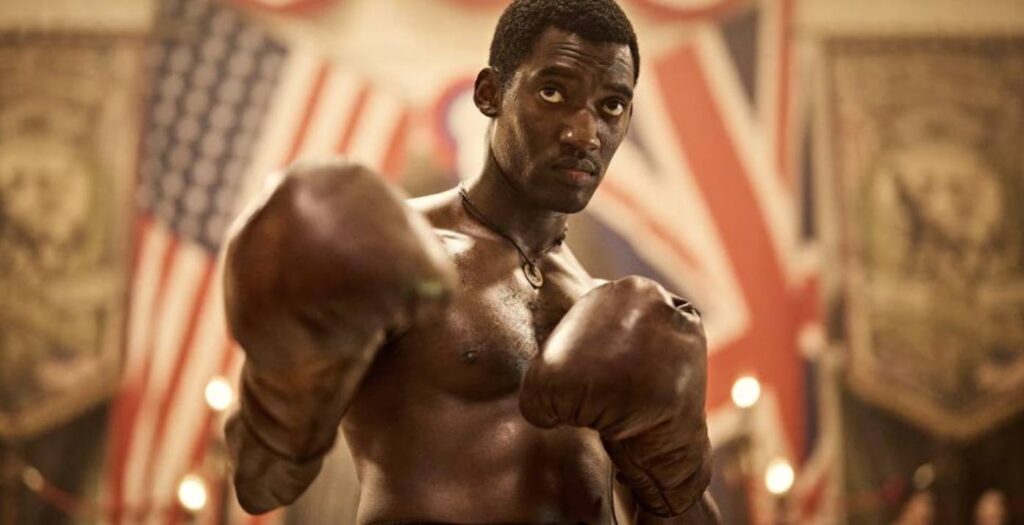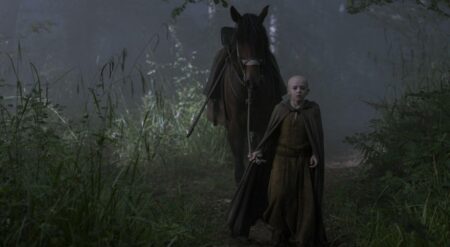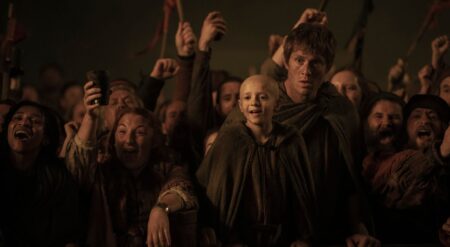A Thousand Blows is inspired by the true-life stories of people battling for survival in the brutal East End of London in the 1880s. The core trio of the series are Hezekiah Moscow (Malachi Kirby), Alec Munroe (Francis Lovehall), and Queen of the Forty Elephants, Mary Carr (Erin Doherty). As Hezekiah and Alec try to build a life in London, they have to find a path that isn’t blocked off by the bigoted hierarchy of the world.
Created, written, and executive produced by Steven Knight, Knight’s work has consistently looked toward characters who are playing with a deck stacked against them. From Spencer to Great Expectations, and of course, Peaky Blinders, Knight’s focus as a showrunner and writer has remained on people working within a society around them that continues to push them to their breaking points, especially in England. That theme continues in A Thousand Blows, a series with Knight’s signature drama, anguish, and an eye toward capturing human truths.
A Thousand Blows boasts a cast with no weak link among them. It stars Malachi Kirby, Francis Lovehall, Erin Doherty, Stephen Graham (who also serves as an executive producer), Jason Tobin, James Nelson-Joyce, Morgan Hilaire, Ziggy Heath, Jemma Carlton, and Will Bagnall. In the series, Hezekiah Moscow and Alec Munroe, best friends on the run from Jamaica, find themselves thrust into the criminal underbelly of London’s thriving bare-knuckle boxing scene.
Hezekiah and Alec are best friends, but they’re more like brothers. Having survived the revolution in Jamaica and running to stay alive and find some hope, the two lean on each other. Arriving with nothing of their own, they try to find a home in the East End, only to be rejected by everyone and turned away simply because they’re Black until they come across Lao (Jason Tobin).
Steven Knight continues his period drama streak with A Thousand Blows.
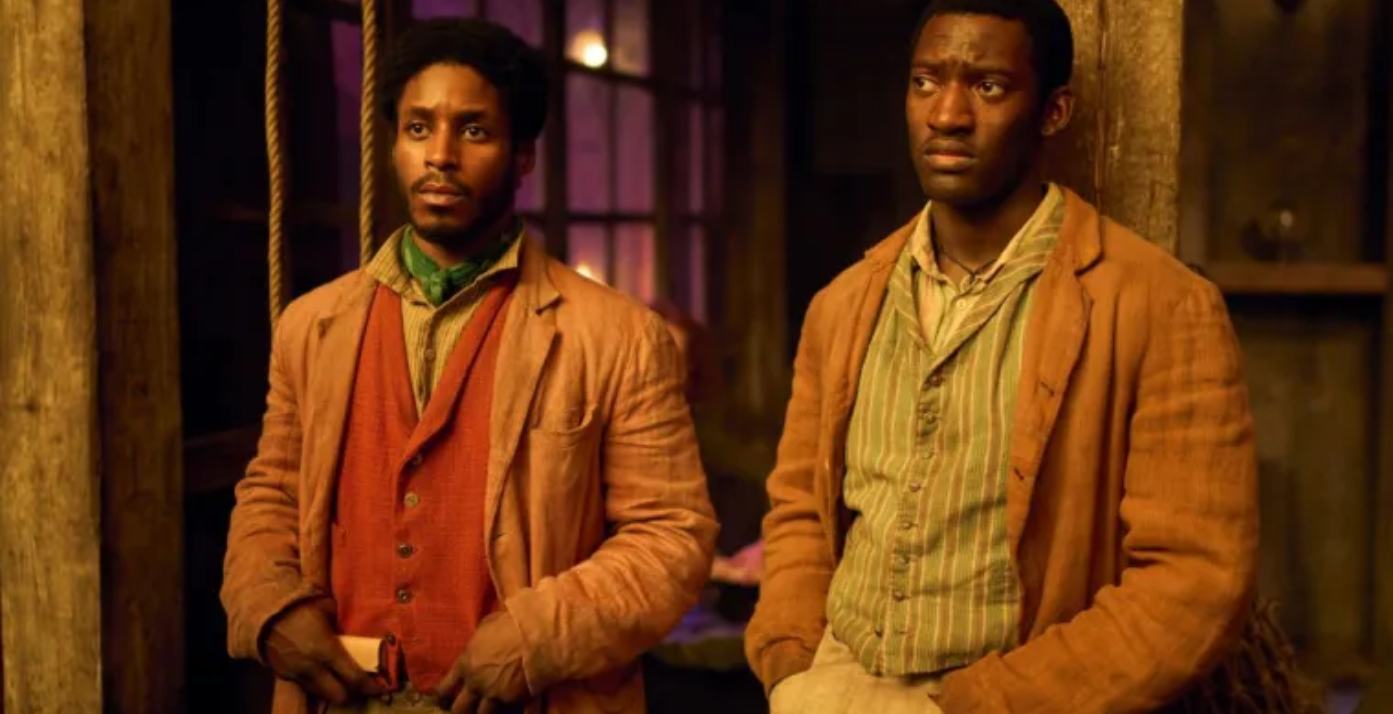
Far different from his role in Warrior, Tobin’s Lao is resilient, but he’s also having to shrink himself to get by. He isn’t ostentatious, and he just wants to blend in and live. At the same time, though, when Hezekiah speaks Mandarin, the kinship he feels is nearly immediate, and he allows him to stay in his basement. After finding a home, Hezekiah and Alec turn their eyes to ring.
Hezekiah dreams of becoming a lion tamer but is forced to fight, the only thing that he is allowed to do. That said, boxing does allow him to find fortune and fame through the art of pugilism, with Alec working as his hypeman and, for all intents and purposes, a manager.
That said, even when he’s making money, Hezekiah is continually forced to deal with the fragility of the Englishmen he beats down, their pride and status working as a cudgel when they can’t win against Hezekiah naturally. That’s where Sugar Goodson (Stephen Graham) comes into play. Sugar, the self-crowned Emporer of Boxing in the East End, doesn’t lose until he meets Hezekiah.
With all of his success, Hezekiah attracts the attention of the infamous Queen of the Forty Elephants, Mary Carr. The leader of the East End’s all-female crime ring, Mary and her girls, use the fact that men belittle them and think they’re superior to make a living however they can. When Mary sees Hezekiah, she exploits his talents to further her criminal enterprise.
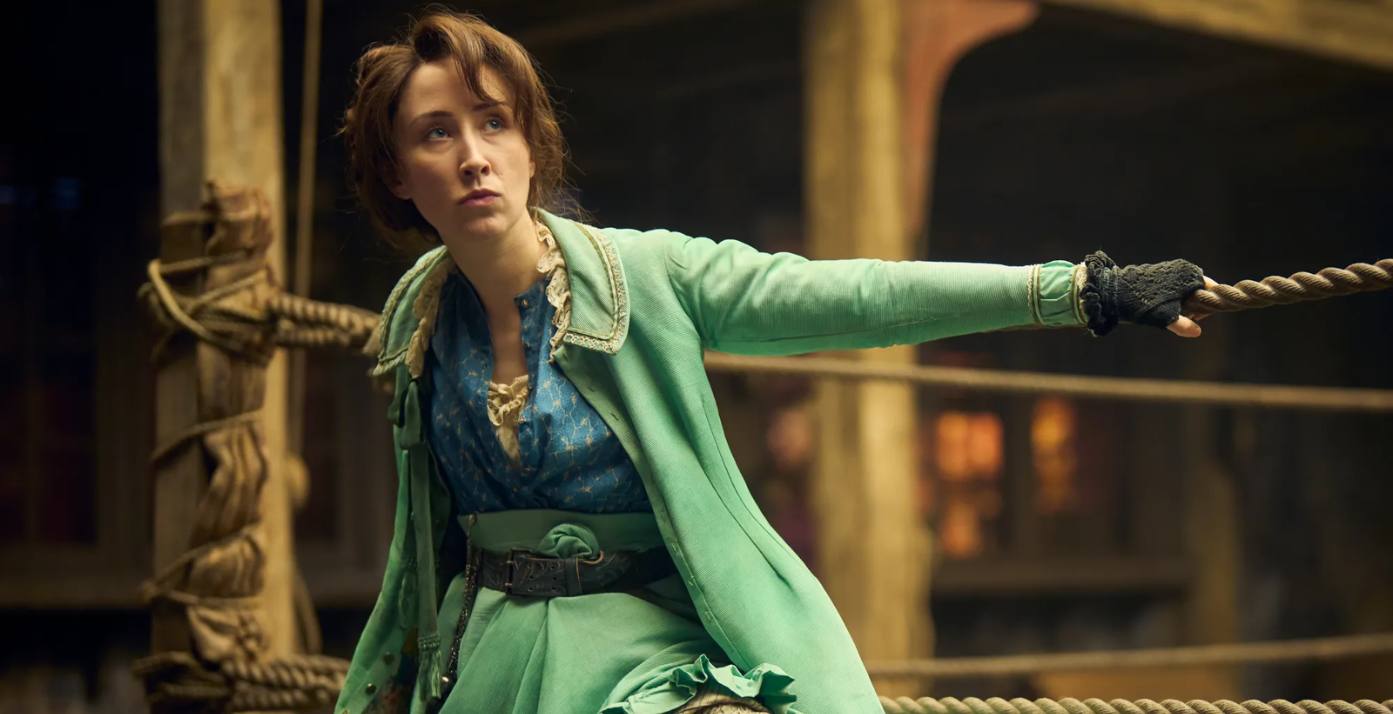
Mary lies to and manipulates him. For Mary, these actions aren’t personal. Lying is how she is able to live and, more importantly, the only way to survive. This all comes into question when she realizes she may love Hezekiah. Mary’s life and attempt to find power is moving. While you hate her for using Hezekiah, you understand why, and you also can see the small ways in which she tries to make up for her mistakes.
Despite the comfort they find in each other, Mary consistently keeps Hezekiah at a distance. But to those who know her, it’s clear that she loves him, which only adds to Sugar Goodson’s hatred of him.
Where Sugar Goodson is content with earning respect through fear in the East End, Hezekiah has his eyes set on the West End. While he gets there with Mary’s help, Sugar is there, a menacing specter constantly forcing Hezekiah into danger. For Sugar, Hezekiah’s strength, pride, and resiliency are an insult, even though Sugar is on the way out, thanks to his age.
Malachi Kirby as Hezekiah Moscow is breathtaking, with emotion as much as physicality.
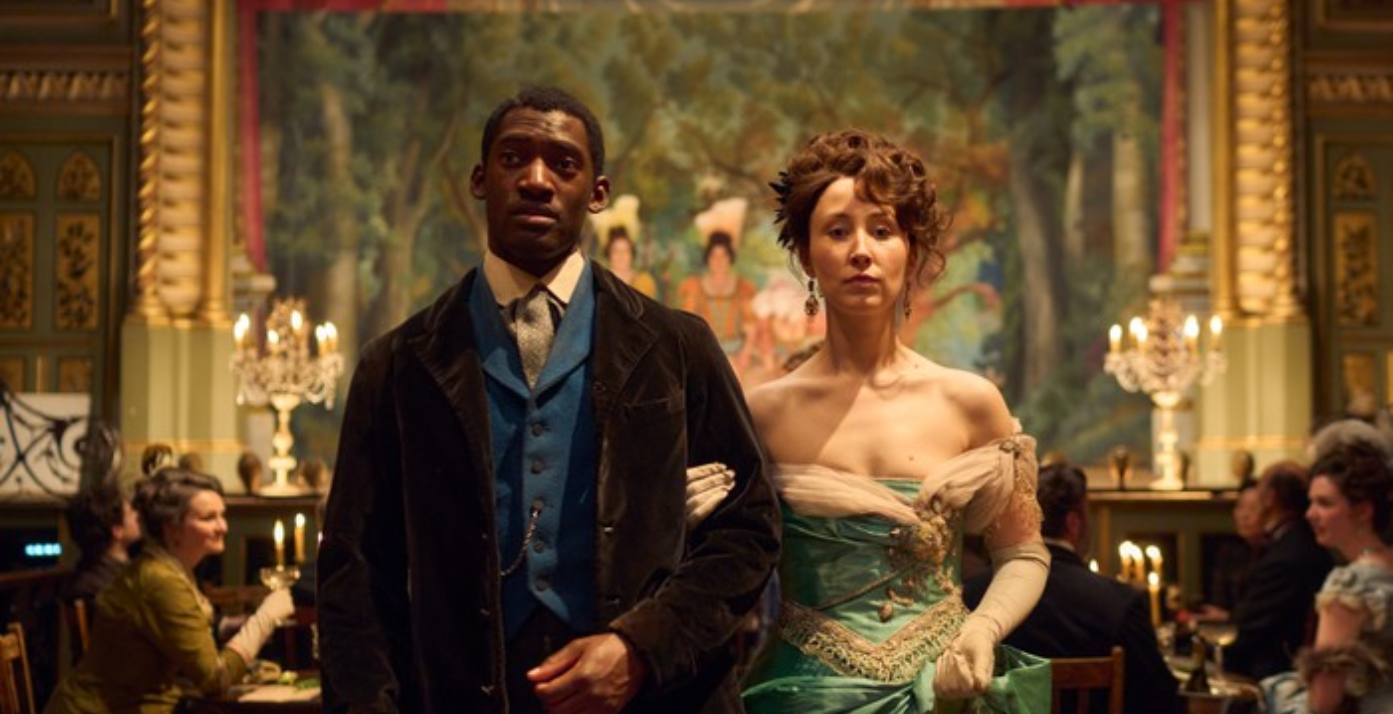
The marketing for the series has it set as “a battle of the old world against the new.” And while that tagline feels off, it does embody what is happening. Sugar is the past. Angry, entitled, a man who thrives in brutality and refuses to see anyone he deems lower than him succeed. His insecurities stoke his violence, and Graham’s performance is reprehensible in the best ways. You hate Sugar immediately, a true villain bolstered by the society he represents.
But the emotional core of the series isn’t thanks to Mary or Sugar. It all belongs to Alec and Hezekiah. While Hezekiah comes to the Old World with hope, interaction after interaction takes it from him. Early in the series, he shares that he came to England to be a lion tamer. To which a white man responds that he has space in his circus for him. Only when Hezekiah follows him is he shown a man-sized cage meant to parade Hezekiah as a part of the freakshow simply because he’s Black.
This moment, however, is indicative of how every Englishman sees Hezekiah. Despite his finesse when he fights, Hezekiah is only seen as a wild man of Africa. He is stripped of his Jamaican identity, his intelligence, his strategic mind, and his strength, which is reduced to just being wild. This makes sections of the series difficult but necessary to watch. At the same time, Steven Knight is careful not to make Hezekiah and Alec only be defined by the racism they experience in London.
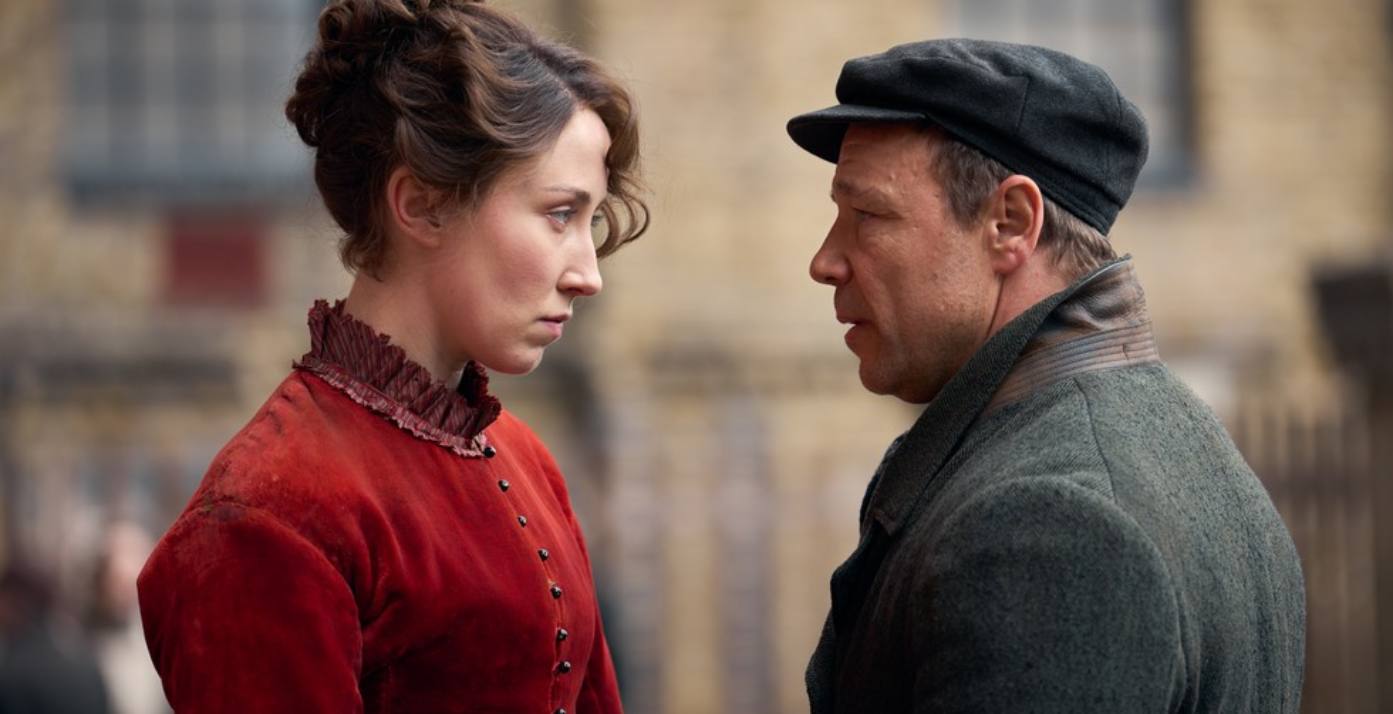
Instead, the audience is given flashbacks to Jamaica and its beauty. The men talk about their families, their ancestry, and the people who made them who they are. They are dynamic characters, first and foremost, and the weight of their trauma doesn’t overwhelm them—in the same way that Mary Carr’s trauma doesn’t obfuscate the other parts of her life.
A little bit of Harlots and a lot of Peaky Blinders, A Thousand Blows is a period drama that doesn’t look at the wealth of Victorian England but the inequities. Hezekiah and Alec are charismatic and beautiful in their vulnerabilities and their strength. When it comes to showcasing Black characters, we think so often of their pain. A Thousand Blows does this as well by turning the historical lens of the series toward two Black men and a woman during a time when the world wants them oppressed at best and dead at worst.
Yet, here, the characters are compelling, and the narrative never focuses only on their struggle. Instead, Hezekiah and Alec are shown as dynamic men with joy, grief, anger, and love. They are whole people who move through the world together, never forgetting their love of Jamaica, no matter how much the white men around them try to brutalize them. In one scene, as the room full of rich Englishmen tries to tear them down, they cheer Jamaica, a colony no more.
We need more of Hulu’s A Thousand Blows.
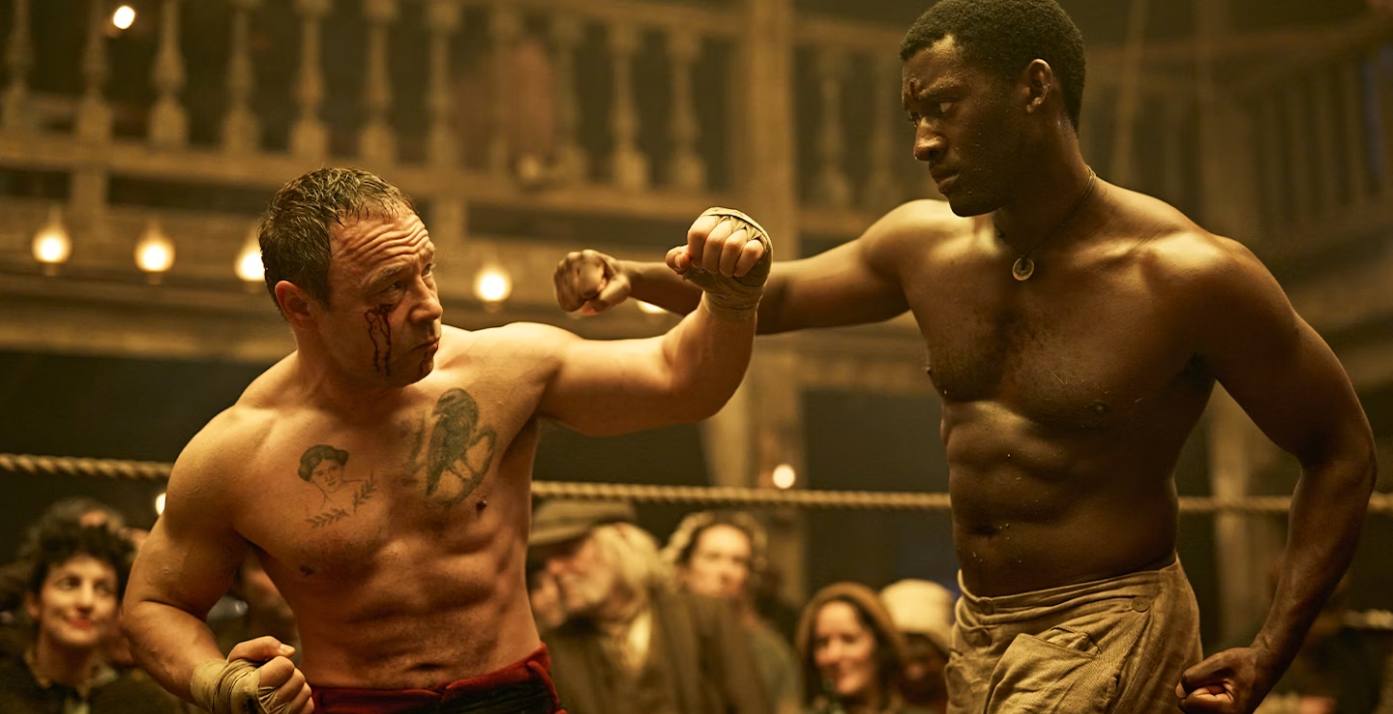
At only six episodes, A Thousand Blows has only one fault: it’s too short. While this has been a common critique for this era of streaming series, it remains true. With narratives so rich and characters so endearing, not to mention the cliffhanger ending, the season just needs more time. At its current length, the Hulu series feels incomplete.
While all of the promotions have said the season is six episodes, the cast credits on the series’ IMDb do note appearances in 12 episodes for its core cast. With any hope, that means that we have more coming, but at the same time, it points to the arbitrary continuation of splitting up seasons into parts and thus hurting its story in the process.
A Thousand Blows is a story of brotherhood, love, friendship, and a resilient spirit. A period drama through and through, it offers drama and action, with boxing sequences that are some of the most exciting I’ve seen on television. Add in the stellar performances from the entire cast; this series is so close to perfection.
The series continues the interesting perspectives that Hulu has brought with its previous original series, and it’s precisely the kind of historical drama that does more than play into our modern fantasies. To call this series simply a boxing drama undersells how powerful its characters have been brought to the screen. A Thousand Blows is a “based on a true story” series that captures its audience by highlighting the depth of each life lived.
A Thousand Blows is streaming now exclusively on Hulu.
A Thousand Blows Season 1
-
Rating - 9/109/10
TL;DR
To call this series simply a boxing drama undersells how powerful its characters have been brought to the screen. A Thousand Blows is a “based on a true story” series that captures its audience by highlighting the depth of each life lived.

